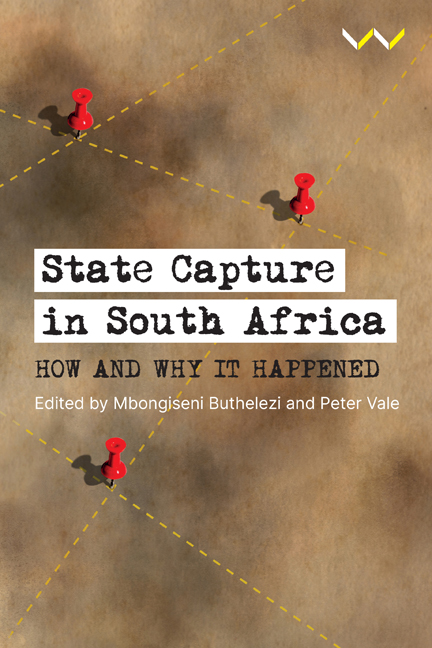Chapter 5 - How Professionals Enabled State Capture
Published online by Cambridge University Press: 28 February 2024
Summary
Capturing a state is neither simple nor easy. It is an enterprise with many moving parts: deals to be made, illicit funds to be channelled, tracks to be covered, and regulators and watchdogs to be dodged. Such a project needs assistance from people with a special set of attributes: people who possess skills, knowledge and a questionable degree of commitment to integrity and ethics. This is where professional enablers played a role – the lawyers, auditors, consultants and others who used their expertise to oil the wheels of state capture in South Africa.
The average consumer of news media will be familiar with the names of high-ranking public officials implicated in state capture as well as those with whom, it is alleged, they concluded improper deals, including former president Jacob Zuma, former Free State premier Ace Magashule, and businesspeople Gavin Watson and the Gupta brothers Ajay, Atul and Rajesh. Less familiar are the names of those who facilitated such transactions. With a few notable exceptions, they have escaped scrutiny. Some of those exposed for their misdeeds have embarked on reputation rehabilitation campaigns but they have, by and large, avoided any serious dent to their operations.
Any account of state capture would be incomplete without a serious analysis of how professionals were able to ensure that the plans to decimate state institutions for private gain were carried out.
It is helpful to examine these actors through the lens of ‘professionalism’. This is because the designation ‘professional’, though shifting, has acquired a certain lustre. There is a sense – undoubtedly cultivated by professionals themselves – that the established professions, such as law and accounting (and newer ones, such as consulting), are set apart from other occupations (McDonald 1995, 29). This sense of deference can be harmful to the public good.
WHAT IS A PROFESSIONAL?
To understand why it is important to single out professionals when attempting to make sense of state capture, we must consider what is meant by a ‘profession’ and a ‘professional’. Two disclaimers: first, the study of the sociology of professions is vast, diverse and largely rejects neat classifications; and second, it is not possible to provide more than a brief snapshot of what is at issue
- Type
- Chapter
- Information
- State Capture in South AfricaHow and Why It Happened, pp. 109 - 129Publisher: Wits University PressPrint publication year: 2023

